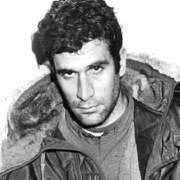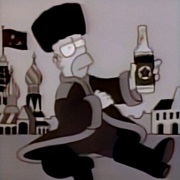|
What is the most powerful flying bug? This poll is closed. |
|||
|---|---|---|---|
| 🦋 |
|
15 | 3.71% |
| 🦇 |
|
115 | 28.47% |
| 🪰 |
|
12 | 2.97% |
| 🐦 |
|
67 | 16.58% |
| dragonfly |
|
94 | 23.27% |
| 🦟 |
|
14 | 3.47% |
| 🐝 |
|
87 | 21.53% |
| Total: | 404 votes | ||
|
Cerebral Bore posted:i'm p certain this is a bit, but then again i'm sure that there are people who actually believe that the west doesn't have the industrial capacity to fight a real war and this is a good thing actually this guy's bit is syqing metafilter
|
|
|
|

|
| # ? Jun 2, 2024 11:27 |
|
KomradeX posted:I guess a buch of F-16s getting evaporated by AA fire might cause a crack in the invincible narrative they've built over the last 3 decades They're actually supposed to be on fire and crash to the ground.
|
|
|
|
Lostconfused posted:F-16 is the starting plane in HAWX and the newest Ace Combat. in ace combat 4 you start in a f4 and I remember thinking at the time that the protagonist nation must be really desperate to be sending these out. the f-16 is the current generation’s f4 I guess.
|
|
|
|
speng31b posted:this guy's bit is syqing metafilter Good News for CSPAM: Catpetter lives!
|
|
|
|
Frosted Flake posted:I don't see Russia needing to take any risks to get some movement going, what they're doing is working for them Frosted Flake posted:No idea what's going on with the nuclear power plant, river crossing, or whatever else might have been considered before the summit.
|
|
|
|
lol
|
|
|
|
Ace Combat 04 owned and should be remade with the latest ace combat engine Also ace Combat 6 was awesome and the operations system should be reintroduced, it would be remembered as the 2nd best ace combat if they had dialled back the overwhelming cringe
|
|
|
|
BearsBearsBears posted:Soviet and Russian minefield doctrine is to build minefields and hope that Panzers blunder into them. It's baffling that this has worked out twice. Virgin PGM wunderwaffe vs. the Chad "just put bombs on the ground lol"
|
|
|
|
OctaMurk posted:Ace Combat 04 owned and should be remade with the latest ace combat engine i thought cringe was part of the experience like captain Crisp white sheets in the latest one, that whole battle was loving amazing and part of it was the utter nonsense of the dialogue and plot
|
|
|
|
Regarde Aduck posted:i thought cringe was part of the experience See that was different -- that was fun campy cringe, whereas "go dance with the angels" was just too much for me to handle
|
|
|
|
stephenthinkpad posted:Here is the funny thing, the Trump gang (part of GOP) wanted to ally with Russia to fight China, and Biden burnt the bridge so hard that its nite on impossible for GOP to go back to create new detente with Russia, even if Trump wins 2024. Biden and Europe put so much hate on their Russian nationals sanctions its going be very hard for even St. Petersburg liberals What is a St. Petersburg liberal? Like, left/western european leaning russian that lives near the finland border?
|
|
|
|
st petersburg is a big city.
|
|
|
|
A St. Petersburg liberal is a liberal that lives in St. Petersburg.
|
|
|
|
Raccooon posted:Is there an expectation that another joint Russian/Belarussian force may push into Ukraine? It would probably be a joint Wagner/Russian offensive more than a Belarussian one, but Belarus may be mobilized if Poland actually joins the fray.
|
|
|
|
DancingShade posted:Just wait until the MIC mass produce wooden slingshots with rubber straps and metal ball bearings for ammo. Once Ukraine gets their hands on them Russia won't know what hit them. The silent operation means those dumb Russians will just stand around getting picked off, like in Skyrim. https://www.youtube.com/watch?v=tbKGjRoSofA anyone know how political joerge sprave is?
|
|
|
|
Ardennes posted:It would probably be a joint Wagner/Russian offensive more than a Belarussian one, but Belarus may be mobilized if Poland actually joins the fray. if this is after Poland receives it's 1000 Abrams and K2's this might actually be a problem lol i wonder what the lead time is on them
|
|
|
|
Russia probably won't pull punches with Poland like they are with Ukraine right now.Ценности.РФ posted:
|
|
|
|
Hadlock posted:What is a St. Petersburg liberal? Like, left/western european leaning russian that lives near the finland border? It's a shorthand I see everywhere, but I can't think of why Europhile PMC would congregate there specifically and not Moscow or any of the other major cities or university towns.
|
|
|
|
Hadlock posted:What is a St. Petersburg liberal? Like, left/western european leaning russian that lives near the finland border? I will just add that St.Peterburg opposition types are usually more radical/hardcore a lot of than their Muscovite cousins and that the anti-war protests in St.Petersburg were actually bigger. They love the black-yellow-white flag up there, just saying. Regarde Aduck posted:if this is after Poland receives it's 1000 Abrams and K2's this might actually be a problem lol Its going to be years. Frosted Flake posted:It's a shorthand I see everywhere, but I can't think of why Europhile PMC would congregate there specifically and not Moscow or any of the other major cities or university towns. Its the prostitution capital of Russia. I don't like St.Petersburg and I think it is weird in general. Ardennes has issued a correction as of 21:15 on Jul 14, 2023 |
|
|
|
Frosted Flake posted:It's a shorthand I see everywhere, but I can't think of why Europhile PMC would congregate there specifically and not Moscow or any of the other major cities or university towns. yuge port city so you will have more foreigners there. Mumbai had a similar dynamic when I left India.
|
|
|
|
Lostconfused posted:A St. Petersburg liberal is a liberal that lives in St. Petersburg. I think this was partly answered by others, but is St. Petersburg especially more liberal than moscow or other large cities? Kalliningrad? Just seems odd to call out St. Petersburg in particular, never heard that city called out as especially anti putin/pro ukraine before, that that I've been reading super deep into this conflict on the regular
|
|
|
|
Hadlock posted:What is a St. Petersburg liberal? Like, left/western european leaning russian that lives near the finland border? the morons who vote yobloko and are the stars of every western puffpiece about the "opposition" that doesn't focus on navalny. their heros all end up taking positions within the putin government because putins regime is a fundamentally liberal regime. they protest not so much it's structure as their own personal lack of power within it.
|
|
|
|
Hadlock posted:What is a St. Petersburg liberal? Like, left/western european leaning russian that lives near the finland border? St. petersburg liberals are the Russian version of Shanghai liberals, heh.
|
|
|
|
We were talking about how liberals are going to rewrite the history of WW2. More generally, just from discussing the articles about history appearing in magazines and op-eds, I had a sense that some contortions were ahead. To paraphrase Adam Curtis, because modern technocratic neoliberals do not believe in anything, while at the same time they are true believers in technocratic neoliberalism itself, the end of the End of History would not cause them to return to Marx, or Social History, or any other historical school, so they could explain the changes happening around us. Rather, I suspected that denying that anything is going around us is their bedrock belief, so they will create incoherent historical models, or express anger at the field of history itself. I don't go to conferences on Historical Theory or anything (Paging @ Dreyland), so I don't know how to better explain this, other than "begun the History Wars Have". From Participants and Fellow Travelers: The Left, the Soviet Union, and the Fall of Objectivism Frode Lindgjerdet’s survey of the political sympathies of the authors of various Norwegian textbooks in postwar world history for high school seniors is illustrative, even though its data for the period between 1983 and 1998 only include four textbooks written by a total of six people (including the present author). Three of the authors stated that they were members, and in part highly active members, of the Socialist Left Party, with a fourth author also voting for the party. Everyone who stated their party preference supported the Socialist Left, and three of the four textbooks had at least one Socialist Left author. The Socialist Left Party had originally been founded (under the name of the Socialist People’s Party) to oppose a pillar of Norwegian foreign policy during the Cold War—namely, to participate in NATO alongside the democratic, capitalist powers of the West—that all other political parties save the Communist Party agreed on. Despite the low number of authors, I think it gives food for thought that at least half of those who during these years wrote the high school textbooks dealing with the Cold War belonged to the political wing—the decile farthest to the left on the political spectrum—that opposed the foreign policy consensus in Norway. And when those students who had read these history textbooks by Socialist Left authors enrolled at the University of Oslo, the standard textbook they read on twentieth-century Norwegian history was written by none other than Berge Furre, a co-founder of the Socialist People’s Party in 1961, a representative to the Storting for the Socialist Left from 1973 to 1977, and chair of the party from 1976 to 1983. The number of Socialist Left historians does not increase considerably with Furre, but their importance does. Most Norwegians today would be skeptical of a Nazi-influenced historian—and probably more skeptical the closer to the Nazi era the person’s field of research was—even were this historian to follow all the rules of proper historiography. It is such a skepticism that comes to the fore when Erling Sandmo writes that the Holocaust revisionists’ “political situating is such that their factual information is not part of something that would be truth for me.” Even though Sandmo’s phrasing is idiosyncratic and his concept of truth is contested, his morally and politically justified dismissal of radically dissenting historians’ potential to say something worthy of scholarly consideration can be said to represent an antipositivist consensus. We do not listen to geocentrists—at least not when the conversation is about astronomy. Likewise, we do not listen to adherents or sympathizers of totalitarian ideologies when the discussion is about the conflict between democracy and dictatorship. (Analogies can sometimes lead us astray, however; today, a geocentric astronomer would be incapable of adhering to the rules of astronomy, but no corresponding rules prevent totalitarian historians from sticking to a political conviction that would cause them to be ostracized from professional circles.) However, throughout the 1960s and especially the 1970s, the critique of positivism, in Norway as in other countries, came ever more strongly from the political Left and came to be identified as such. Not least, the Left itself self-identified with this critique. Though this was not necessarily the inevitable outcome of antipositivism, as a general fact it is indisputable. And although there were exceptions, such as the Conservative historian Francis Sejersted (who continued to use we as his personal pronoun of choice), the radical dominance among Norwegian humanists and social scientists as well became both overwhelming and deafening. Historians not only could but should be part of the Left, or at worst of the left-leaning faction of the center-right Liberal Party (Venstre). Another example of the Left’s dominance in recent Norwegian historiography concerns the history of the Norwegian Labour Party. The Labour Party went through a turbulent period during the early 1920s, with majority adherence to the Moscow Theses and a subsequent split, before the party sloughed its revolutionary agenda, merged with the Norwegian Social-Democratic Labour Party, and became a reformist, parliamentarian party, becoming the dominant force in Norwegian politics from 1935 on. What then, is the political stance of the historians who have studied this part of the Labour Party’s past? Of the seventeen Norwegian historians included in the syllabus for a course at the University of Oslo on the Labour Party from 1918 to 1940, set up by the young historian David Redvaldsen in 2011, all but one (whose affiliation is uncertain) are avowedly on the Left. If Redvaldsen’s syllabus is roughly representative—as there is good reason to believe, even though several high-profile Marxist or socialist historians of the Labour Party are missing—that means that this turbulent and decisive phase in Labour history has been almost exclusively studied, and then presented, by historians on the Left. Of course, the fact that socialist historians study socialist parties is not something for which they can be faulted. That there are considerable differences in opinion between historians on the Left—not least those on the Far Left—is beyond doubt. But to the degree that values influence not only the selection of research topics, which is patently obvious in this case, but also their findings and interpretations—which must be said to be one of the main antipositivist arguments—we must believe that our picture of the Labour Party in the 1920s would have been different had historians from the other side of the political spectrum been involved in drawing it. And unless we assume that the Left enjoys a monopoly on the truth, it follows that this would have enhanced the picture. ---- History appears to have cycles of exploitation, accumulation and crises because historians are all Commies. I guess I could post this in the modern history thread, but I figured it was relevant to some of what we've seen regarding Ukraine always being a part of Europe, the Soviet Union always being the greater evil than the Nazis, all of these beliefs lol that from the outside clearly emerged after February of last year, for a bunch of reasons I don't really understand but I imagine has to do with how liberals must understand the confrontation with Russia. Despite, imo being cooked up with clear goals rooted in the present, this goes back to Snyder and Applebaum trying to integrate post-Soviet states and their insane nationalisms into the European Union, in this case Russia is the eternal enemy, even though Russia only became the enemy last year, it's always presented as eternal truths. Idk it's very, very strange to me. I mean, on face value believing that you are living at The End of History would suggest that your analysis is obviously bullshit, considering that you have to willfully ignore a myriad of increasingly more obvious issues in society today to pretend we're at the End of History. For that to hold up, you would presumably have to ignore the same signs of crises in the past. So you end up writing histories where actually the Ming Dynasty not being able to produce anything because the state could not exercise control over the elites, motivate the populace to fight the Manchus, basically all of the imperial collapse stuff going on right now, around us. Either you ignore them, in which case... how did the Ming state collapse? Or you say those were good, actually, in which case... why did the Ming state collapse? I suppose you could just pretend not to notice any of the same things at the present date, but then it's not really a historical model if you take pains to say it only applies to one time and place and certainly not here, no sir, now is it? Idk it's very funny to be that they're mad at materialist historians and not even disputing the theory or explanatory model anymore. Frosted Flake has issued a correction as of 21:43 on Jul 14, 2023 |
|
|
|
Regarde Aduck posted:if this is after Poland receives it's 1000 Abrams and K2's this might actually be a problem lol speaking of ace combat, the polish army is now like an ace combat air force but with tanks
|
|
|
|
Like the premise of the chapter is "The USSR collapsed, therefore material analysis of history is objectively wrong" (???)
|
|
|
|
US "USSR collapsed! End of history baby! Don't got to learn poo poo!" China "USSR collapsed, we'll learning everything we possibly can from them and avoid all of the mistakes." This has been my summary of modern history.
|
|
|
|
Looking forwards to The End of History 2
|
|
|
|
The End of History 2: History Ends Harder.
|
|
|
|
"Protecting liberal values" with, insane bullshit and willful distortion of history, making sure a research program was under the military academy and not the universities, pressuring historians to whitewash the past, for the greater good of... protecting liberal values? --- When Bent Jensen’s tussle with the Danish guild of diplomatic historians is more exciting, politically speaking, than could be assumed from the latter’s numerical supremacy, it is because Jensen had a formidable backer in the newspaper Jyllands-Posten as well as powerful political allies in both the Liberal Party, at the time a member of Denmark’s coalition government, and the right-wing populist Danish People’s Party. The liberal-conservative Jyllands-Posten, Denmark’s largest newspaper and the one that in 2005 published the cartoons of the prophet Muhammad, gave Jensen—political editor 1989–91 and a member of the board of the foundation that owns the paper—a seemingly unlimited amount of column space. The right-of- center Liberals governed Denmark from 2001 to 2011 in a coalition with the Conservatives, with parliamentary support from the Danish People’s Party. Jensen’s newspaper articles and criticism of Danish mainstream Cold War historiography were an important part of the lengthy cultural battle that Anders Fogh Rasmussen, Liberal prime minister from 2001 to 2009 and subsequently secretary general of NATO, led against the Left in Danish politics. In an article in Historisk Tidsskrift, Denmark’s main history journal, Nikolaj Petersen writes that Fogh Rasmussen, from the time he assumed leadership of the Liberal Party in 1998, aimed to establish a center–right hegemony based on a platform that was centrist in regard to the redistribution of wealth and markedly conservative in regard to social values, which meant promoting such liberal values as democracy, freedom, and human rights. According to Petersen, “the success of this project rested on permanently transforming the public’s beliefs by means of the culture war that the Fogh Rasmussen cabinet declared early on against cultural radicalism, relativism, and multiculturalism.” Fogh Rasmussen’s platform entailed an activist foreign policy, working closely with the United States, the foremost exponent of such liberal values on the global stage, in a common struggle against antiliberal forces. This explains Denmark’s exceptional willingness to support American warfare in not only Afghanistan but also Iraq. In regard to foreign policy, the roots of this new Liberal platform extended back to the 1980s, when then-foreign minister and Liberal Party leader Uffe Elleman-Jensen positioned the party to the right of the Conservatives by supporting Reagan’s foreign policy and resenting the so-called footnote policy—whereby Danish dissent to NATO strategy was duly expressed in footnotes in the alliance’s documents—which the parliamentary majority dictated to the government. Against the foreign minister’s and the government’s wishes, the majority of the Folketing showed interest in making the Nordic countries a nuclear weapon–free zone; they were opposed to allowing (American) naval ships with nuclear weapons on board to dock in Danish ports; and forced the government to make, as the only alliance member, a formal reservation against NATO’s Double-Track Decision of deploying medium-range ballistic missiles unless the Soviet Union withdrew similar missiles that targeted Western Europe. Even though the enemy twenty years later was no longer totalitarian communism but radical Islamism, the chief ally remained the same. And the strategy was still to actively stand up, with U.S. assistance—and with assistance to the United States—against those who threatened liberal values. It was during this culture war against those who threaten liberal values—or, more precisely, against those who either deliberately or as the unintended consequence of originally well-meant actions help those who threaten liberal values—that Bent Jensen and his coterie found common ground with Fogh Rasmussen’s Liberal Party (and the Danish People’s Party) and provided mutual, albeit dissimilar, support. The support from the majority of the Folketing to Jensen was entirely concrete, coming as it did in the guise of allocations for establishing a Centre for Cold War Studies (Center for Koldkrigsforskning, CFKF). The center received a three-year appropriation of 10 million Danish kroner in the government budget for 2006, but it was first in the autumn of 2007 that it was up and running. The center’s mandate was to “carry out free and wide-ranging research and dissemination in regard to Denmark during the Cold War,” which would ultimately result in a “clear and informative publication.” The latter comment was an implicit dig at a 2005 research report from the Danish Institute for International Studies (DIIS) titled “Danmark under den kolde krig” (Denmark during the Cold War), whose four volumes and 2,500 pages of, at times, jargon-heavy text were a tough slog for laypeople and parliamentarians alike and to which we shall return in a moment. Explicitly taking the DIIS report “into consideration”—though perhaps rather being spurred into action by dissatisfaction with it—the center was to “further bring to light both Eastern Bloc influence on Danish decision-makers and the military threats aimed at Denmark and the Baltic Sea region.” “Of particular interest” was “the era’s clash of ideas in politics, in the media, and in the public debate, including the culture debate in its widest sense—in short, the shaping of opinion and its domestic and foreign sources of inspiration.” The Right in Danish politics, as led by Fogh Rasmussen and the Danish People’s Party’s Jesper Langballe, did not believe that mainstream historians would provide them with such a historical analysis. By founding a separate Centre for Cold War Studies, one that hopefully would be led by Bent Jensen—and by locating this center under the Danish Institute of Military Studies, so as to prevent it from becoming part of the university system—they believed it was a sure bet that they would get what they were looking for, given Jensen’s previous books and not least his newspaper articles. Even though Fogh Rasmussen and his allies were not allowed to go all the way and appoint Jensen to head the new center, no one who followed the debate leading up to the center’s founding was in doubt that he was the man both the prime minister and both the prime minister and the Danish People’s Party wanted. Since no academic heavyweights would apply to become the director of a center with such a rightist genesis and a mandate that so clearly was aimed at hunting down fellow travelers, it was impossible for the center’s board—appointed by the minister of defense and consisting of scholars led by Dr. Knud Larsen, the former secretary general of the Ministry of Research—to overlook Jensen. Jensen’s Centre for Cold War Studies marked the culmination of a process that originated as far back as 1995. During this time, Poul Nyrup Rasmussen’s Social Democratic government requested the Danish Institute of International Affairs (DUPI, which later merged to form part of DIIS) for a report on the role Thule Air Base played in relation to U.S. nuclear bombers flying over Greenland from 1945 to 1968. The call for such a report sparked significant controversy, but all parties seemed to find the report itself acceptable when it was finalized two years later. Similarly, the decision in 1999 to appoint the so-called PET Commission was highly contentious. The commission's mandate was to investigate the Danish Security and Intelligence Service (PET) for its monitoring of the Left during the Cold War, including the leftist activities that prompted the surveillance efforts in the first place, as well as the legality of PET’s intelligence gathering after 1968. The decision in 2000, and again in 2002 after the new Liberal–Conservative government had assumed power, to request a report from DUPI and subsequently DIIS on Denmark during the Cold War was another point of intense contention. The bone of contention related to how extensively the researchers were to investigate the connections between the Soviet bloc and what Fogh Rasmussen and others on the Right considered to be Danish fellow travelers. This ultimately became the very mandate of the Centre for Cold War Studies. Bent Jensen was given his own research center. In return, the Liberal Party (and the Danish People’s Party) received legitimacy for their culture war, in the form of ammunition for the attack by Fogh Rasmussen and his like-minded associates on those who in their view had not stood up to the totalitarian threat during the Cold War, or who had done so insufficiently, and who had instead advocated or at least been open to the idea of adapting to the enemy’s wishes and demands. Fogh Rasmussen and his culture war allies saw a parallel between those who sought to accommodate communism during the Cold War and those who were accommodating during the war on Islamist terror: this was in a sense not entirely unreasonable, especially since their criticism concerned some of the same people and organizations. The Danish Right therefore wanted historical research that reviewed the Left’s Cold War “accommodation,” what Langballe during the Folketing debate in March 2006 on founding a center for Cold War research called “the intellectual and political fascination for a totalitarian ideology that, next to Nazi-Germany, had established the most heinous terror-state in world history.” For Langballe, the relevance of such a review was obvious: "Gaining an overview of the era’s accommodation can, among things, put today’s accommodation in perspective. Accommodating the terrifying totalitarian ideology of the present age, Islamism, causes quite a few of today’s intellectuals, artists, and politicians to fail to defend freedom of speech and the free criticism of religion. We experienced accommodation to totalitarianism during the 1930s, we experienced it during the footnote era, and we experience it today—and this is a history that shall be told. For the choice between freedom and totalitarianism always turns up in new guises." As Fogh Rasmussen put it during the same debate, “the Cold War was a battle of values, an ideological conflict between different systems, between dictatorship and democracy, between totalitarian ideologies and free thought, between market economy and plan economy—and in this conflict between democracy and dictatorship one cannot remain neutral.” By alluding to how extensive the accommodating tendency was during the Cold War—how well-intentioned, naïve, and frightened Danish socialists, social democrats, and radical politicians, cultural figures, and media representatives served the interests of the Soviet dictatorship by arguing in favor of compromising with Moscow rather than, with help from the United States, standing firm against the demands from the enemies of freedom—Bent Jensen implicitly supported the Liberal-led government’s arguments against accommodating the demands from Islamists, who, for example, stated that they were offended by the Muhammad cartoons. To be sure, such arguing by way of analogy is problematic from a logical standpoint. But it can certainly be politically effective. --- Danes! Explain yourselves! e: I don't even know what the gently caress to say about them working Islam into it. They think it's a nice story about protecting Denmark and Danish history from communists but it's basically a long essay about the government spying on historians, being driven out of the academy, censorship, propaganda, military control of an institute so it produces the "correct" research, ... which suggests, if we're drawing comparisons, that Muslims are not a threat to Denmark so much as Denmark is a threat to Muslims. It's the most absolutely delusional heavy-handed insanity, with the full power of the state directed by the right wing parties, but all done in the name of protecting liberal values. How do you square that circle? Frosted Flake has issued a correction as of 22:05 on Jul 14, 2023 |
|
|
|
https://www.youtube.com/watch?v=urp4BqYkjM0 I checked though the video and there doesn't seem to be anyone actively hurt in it but it gives I think a decent view on the early days of the Ukrainian counter-offensive. Basically, there is almost no cover and the cooperation doesn't seem great (this is from an American but it seems chaotic overall). I think the guy that took the video was lucky.
|
|
|
|
Ardennes posted:https://www.youtube.com/watch?v=urp4BqYkjM0 This Go-Pro and body cam poo poo needs to go. Operators needed to wear them so their bosses could micromanage incredibly high stakes operations. These guys are choosing to wear them because...? (because operators wore them)
|
|
|
|
Question regarding the wonder waffle pipeline, how come the west is only letting F16 do all the heavy lifting, how come they don't send the M1 back to the news oven to re-heat it? The Abram taking point has completely vanished. Is the US army that afraid of giving Ukraine the tanks? Like, the US has tons of spare and they are useless in the Taiwan conflict. Just send in a few hundreds. If the Ukrainians can use them to resist Russia for additional half to one year, IMO its money well spent.
|
|
|
|
Ardennes posted:https://www.youtube.com/watch?v=urp4BqYkjM0 it really does suck that such a pretty country has all that bullshit going on also, if I had all those casing and poo poo rattling around all the time it would really drive me nuts on top of the overall stressful situation of warmanning
|
|
|
|
Turkey is holding up swedish NATO membership on f-16 sales to turkey, and a couple other things Seems not unlikely that they'd like to get Sweden into NATO before the issue goes cold
|
|
|
|
stephenthinkpad posted:Question regarding the wonder waffle pipeline, how come the west is only letting F16 do all the heavy lifting, how come they don't send the M1 back to the news oven to re-heat it? The Abram taking point has completely vanished. Is the US army that afraid of giving Ukraine the tanks? Like, the US has tons of spare and they are useless in the Taiwan conflict. Just send in a few hundreds. If the Ukrainians can use them to resist Russia for additional half to one year, IMO its money well spent. the US doesn't want to send Ukraine any Abrams tanks with the most updated armor since it's still secret. with that said, the US does have a couple thousand units sitting around unused lol
|
|
|
|
stephenthinkpad posted:Question regarding the wonder waffle pipeline, how come the west is only letting F16 do all the heavy lifting, how come they don't send the M1 back to the news oven to re-heat it? The Abram taking point has completely vanished. Is the US army that afraid of giving Ukraine the tanks? Like, the US has tons of spare and they are useless in the Taiwan conflict. Just send in a few hundreds. If the Ukrainians can use them to resist Russia for additional half to one year, IMO its money well spent. the pentagon claims that the m1 abrams, which was designed to the russians, is logistically completely unsuitable for fighting russians and too heavy for the terrain on which russians are to be fought
|
|
|
|
stephenthinkpad posted:Question regarding the wonder waffle pipeline, how come the west is only letting F16 do all the heavy lifting, how come they don't send the M1 back to the news oven to re-heat it? The Abram taking point has completely vanished. Is the US army that afraid of giving Ukraine the tanks? Like, the US has tons of spare and they are useless in the Taiwan conflict. Just send in a few hundreds. If the Ukrainians can use them to resist Russia for additional half to one year, IMO its money well spent. a burning M1 in some minefield in eastern ukraine would be too perfect a symbol of american decline so it cannot be allowed
|
|
|
|
Egg Moron posted:a burning M1 in some minefield in eastern ukraine would be too perfect a symbol of american decline so it cannot be allowed Might as well cut the wings off the space shuttle
|
|
|
|

|
| # ? Jun 2, 2024 11:27 |
|
OctaMurk posted:the pentagon claims that the m1 abrams, which was designed to the russians, is logistically completely unsuitable for fighting russians and too heavy for the terrain on which russians are to be fought I'm starting to think that the Soviets would have won either if they bounded to the Rhine in a week, or if the war lasted more than a month without a massive strategic nuclear exchange. Frosted Flake has issued a correction as of 22:42 on Jul 14, 2023 |
|
|














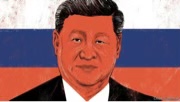
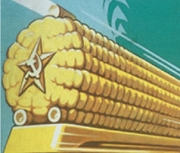

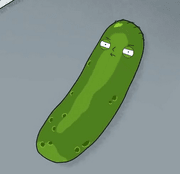
 The court in Kiev sent Metropolitan Pavel to jail The 62-year-old governor of the Kiev-Pechersk Lavra, who was still under house arrest, will be held in an isolation ward until August 14, while he is left with the possibility of posting a bail of 33 million hryvnia. Earlier, Metropolitan Pavel was given an ultimatum: the termination of criminal prosecution in exchange for the eviction of monks from the lavra and the transition to the OCU. He refused, and the house arrest was extended.
The court in Kiev sent Metropolitan Pavel to jail The 62-year-old governor of the Kiev-Pechersk Lavra, who was still under house arrest, will be held in an isolation ward until August 14, while he is left with the possibility of posting a bail of 33 million hryvnia. Earlier, Metropolitan Pavel was given an ultimatum: the termination of criminal prosecution in exchange for the eviction of monks from the lavra and the transition to the OCU. He refused, and the house arrest was extended. 

